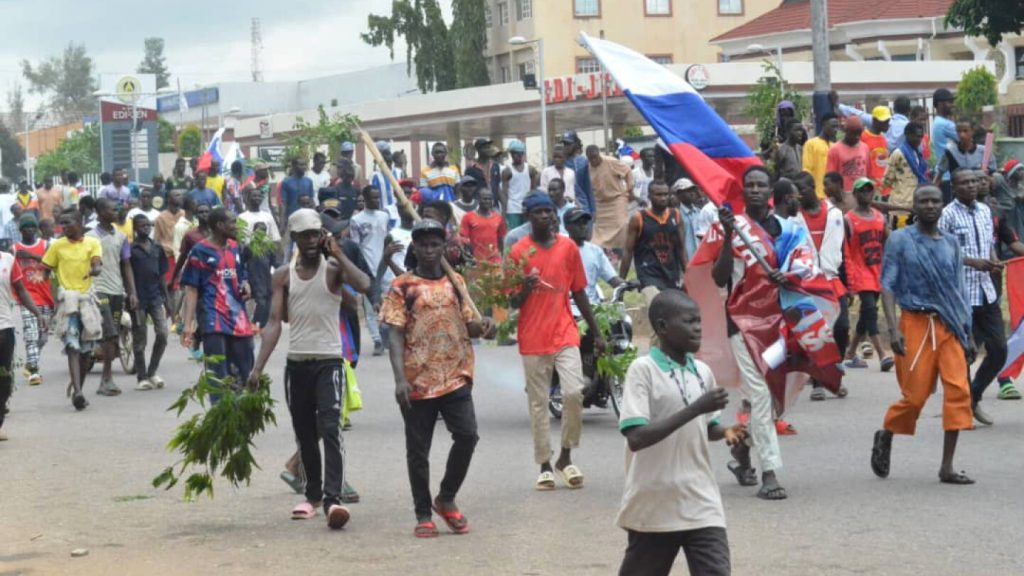Polish diplomats are working to secure the release of seven Polish citizens who were detained in Nigeria during protests. The group consists of six students and a lecturer from Warsaw University who were participating in a language study program. They were arrested in the state of Kano in northern Nigeria for allegedly carrying Russian flags during a protest. However, Polish officials believe this was a misunderstanding and are seeking clarification on the legal situation of the detained individuals.
The Polish consul in Abuja met with the detained students, who are reported to be in good condition and staying in a hotel in a safe area of the city. No charges have been brought against them yet, and the investigation is ongoing. Deputy Foreign Minister Jakub Wisniewski has appealed to Nigeria to allow the students and lecturer to return to Poland, emphasizing that their actions may have been due to ignorance of local customs, culture, and laws. He also dismissed the possibility of the group carrying Russian flags, citing the rarity of pro-Russian sentiment in Poland.
Wisniewski highlighted the current situation in Nigeria, where a curfew and a ban on demonstrations are in place due to ongoing protests fueled by high inflation and hunger. While some Nigerian protesters have been seen waving Russian flags, the sentiment is not widespread in Poland. The country has a history of suffering under Russian rule and is critical of Russian aggression in Ukraine. Polish society strongly backs Ukraine and views Russia with suspicion in international affairs.
The situation in Nigeria is complex, with large protests taking place in response to economic difficulties and dissatisfaction with the government. The presence of foreign flags in the protests, including Russian flags, reflects a growing trend in Africa where pro-Russian sentiments emerge in countries affected by political unrest. The detention of the Polish students and lecturer amid this backdrop adds to the challenges faced by foreign nationals in navigating local dynamics during periods of social upheaval.
As the diplomatic efforts continue, Polish officials are working to secure the release of the detained citizens and ensure their safe return to Poland. The students and lecturer have been assured of support from their home country, which is actively engaging with Nigerian authorities to resolve the situation. The focus remains on understanding the circumstances that led to the detention and facilitating the return of the individuals to their families who are eagerly awaiting their safe homecoming.
Overall, the case of the detained Polish citizens in Nigeria underscores the complexities of international relations and the importance of cultural sensitivity in times of crisis. As Poland seeks to navigate the situation and secure the release of its citizens, the incident serves as a reminder of the challenges faced by individuals studying or working abroad, particularly in countries experiencing political unrest. The diplomatic efforts and support from the Polish government highlight the commitment to protecting its citizens and ensuring their well-being in challenging circumstances.


